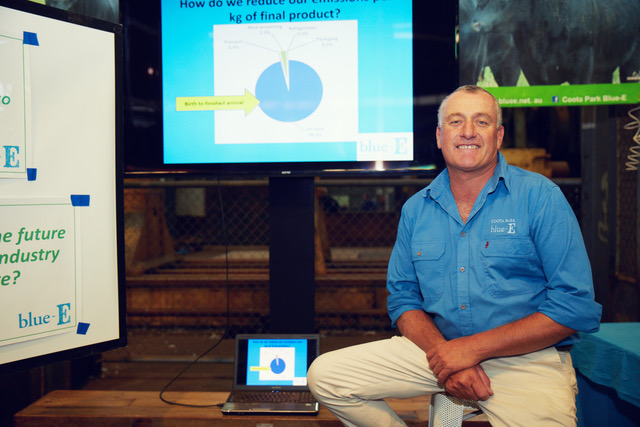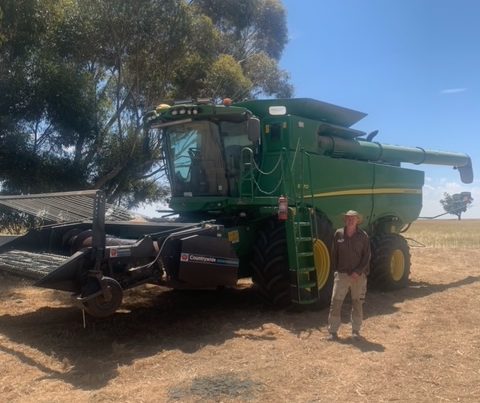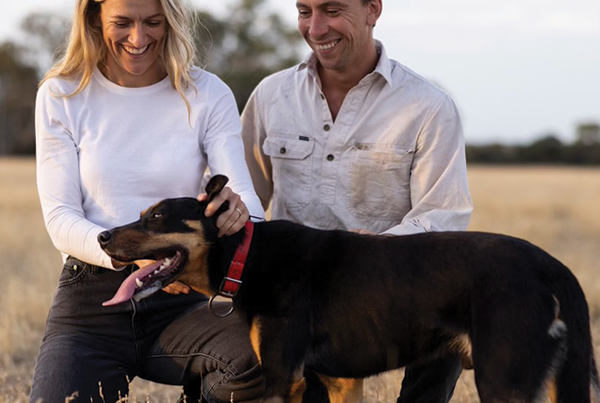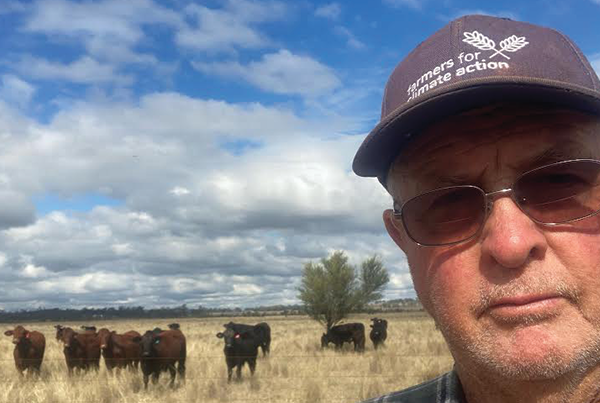At a glance
Who: Jon Wright
What: Beef Seedstock and commercial producer
Where: Cowra, central west NSW
Jon Wright is a beef seedstock and commercial producer from Cowra in central-west New South Wales. Jon is focussed on breeding a low methane line of cattle because “Science has shown that highly feed efficient cattle produce less methane per kilogram of beef produced”.
Can you tell us about your property?
3000 acre all grazing – no cropping. Low input rotational grazing system. Minimal chemical and fertiliser use.
We have been breeding and selecting our line of cattle the Blue-E’s for 23 yrs for feed efficiency, maximising production with reduced input.
This line of cattle is a low methane line of cattle having selected for feed efficiency for the longest in the world. Science has shown that highly feed efficient cattle produce less methane per kilogram of beef produced.
What first got you thinking about climate change?
I became aware of the amount of methane (or Co2 equivalent beef produced). It shocked me and I began to investigate if this was true. I felt a strong need for us to be honest and upfront about our emissions. We need to accept responsibility and make changes to our industry with a view to fixing the problems of climate change, rather than defending our industry first.
How has climate change impacted on your farm business?
As a farmer I have sensed the change in our seasons and the variability in our seasons. I’ve been trusting my instinct and listening and learning about how the impact may affect us and how we might adjust.
We need a lower input system that encourages organic matter to increase in our soil to aid in capturing and utilising more of the rain that falls on our property. We need to retain ground cover and breed more resilient cattle and more efficient cattle.
Listen, learn and adapt.
What are some of the climate-smart strategies you’ve been employing and how successful have they been?
The beef industry is going to be significantly affected by people’s response to climate change. We will see reduced demand for our product if we do not take responsibility for our emissions. I am strongly urging our industry to get smart and proactive in reducing our emissions otherwise demand will dry up over time. It is the greatest challenge our industry has ever faced and we need to act.
As a farmer we will be affected by climate change on our properties just as all farmers will be, the difference is the demand for our product will be focused on more directly and proactively by the general consuming public.






